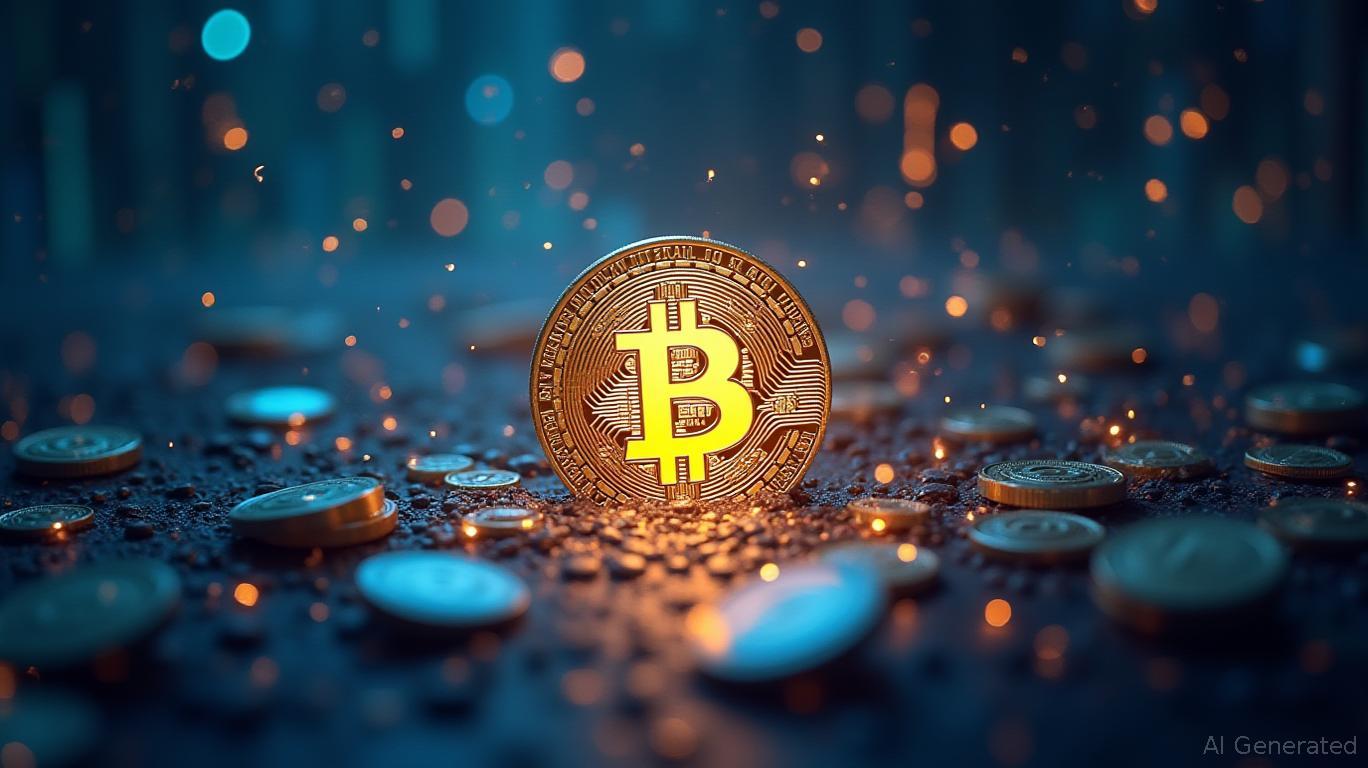Tokenized Deposits and Stablecoins: Competing for the Future of Blockchain-Based Finance
- Omid Malekan criticizes tokenized deposits for limited flexibility and interoperability compared to stablecoins, which offer cross-platform utility and 1:1 reserves. - Standard Chartered forecasts a $2 trillion RWA market by 2028, driven by DeFi growth and stablecoin liquidity, with Ethereum dominating due to its reliability and ecosystem. - Regulatory clarity, especially in the U.S., remains a critical challenge, with Standard Chartered warning of potential delays before 2026 midterm elections. - The de
Omid Malekan, an adjunct professor at Columbia Business School, expresses doubts about tokenized bank deposits, claiming they do not offer the same adaptability or technical benefits as stablecoins, as reported by
Malekan argues that tokenized deposits—which are essentially bank account balances recorded on a blockchain—are more limited in function than stablecoins. He compares them to "a checking account that only allows you to write checks to others at the same bank," highlighting their restricted use for transactions outside their own network, as per Cointelegraph. In contrast, stablecoins are fully backed and overcollateralized, providing enhanced security and flexibility. They can be moved between various crypto platforms, integrated into decentralized apps, and utilized in lending protocols—capabilities that tokenized deposits lack due to know-your-customer (KYC) requirements and restricted access.

In contrast, Standard Chartered foresees tokenized RWAs playing a pivotal role, projecting a dramatic rise in market value from $35 billion today to $2 trillion by 2028—a 5,600% increase. The bank credits this surge to the growing stablecoin sector, which has brought $300 billion in on-chain liquidity and promoted wider DeFi adoption. Geoffrey Kendrick, the bank’s head of digital assets research, believes stablecoins have paved the way for the tokenization of traditional assets like money-market funds, stocks, and real estate. He estimates $750 billion each in tokenized money-market funds and listed equities, with further expansion in funds, commodities, and corporate bonds, as mentioned by
According to
However, obstacles persist. Malekan’s concerns highlight the risks of tokenized deposits, such as their dependence on fractional reserves and limited ability to interact with other systems. At the same time, Standard Chartered warned that ongoing regulatory ambiguity—especially in the U.S.—could slow progress if clearer rules are not established before the 2026 midterm elections, as referenced by
This ongoing discussion mirrors larger issues within the financial sector. While Malekan sees tokenized deposits as less effective than stablecoins, Standard Chartered and other advocates believe RWAs can connect traditional finance with blockchain advancements. As DeFi moves from a specialized area to mainstream use, the competition to shape the future of financial infrastructure is heating up, according to
Disclaimer: The content of this article solely reflects the author's opinion and does not represent the platform in any capacity. This article is not intended to serve as a reference for making investment decisions.
You may also like
Bitcoin Updates: Hong Kong's Cryptocurrency Regulations Ignite Clash Between Digital Assets and Conventional Banking
- Franklin Templeton CEO Jenny Johnson highlights crypto's disruptive potential, framing it as a bridge to traditional finance amid institutional adoption and Bitcoin's "digital gold" appeal. - Hong Kong's SFC reforms enable crypto exchanges to access global liquidity pools, accelerating blockchain integration while maintaining investor protections under Fintech Week 2025 initiatives. - Market volatility contrasts with institutional optimism: Coinbase reports 25% Q3 revenue growth, while Saylor predicts $1

Ethereum News Today: Ethereum's 3-Day Drop: Will the Next Move Be Upward or Signal a Downtrend?

FTSE Russell and Chainlink Transform Markets by Integrating Conventional and DeFi Indices
- FTSE Russell partners with Chainlink to publish market indices onchain via DataLink, bridging traditional and decentralized finance. - The collaboration provides real-time, tamper-proof data for indices like Russell 1000 and FTSE 100 across 50+ blockchains, supporting $18T AUM. - This initiative accelerates tokenized asset adoption and enables next-gen financial products, leveraging Chainlink's $25T-secured infrastructure for institutional-grade trust. - By democratizing access to benchmarks, the partner

South Korea's Rapid Growth in Stablecoins Meets Regulatory Hesitation
- South Korea is rising as a key stablecoin hub, balancing innovation with regulatory scrutiny as Tether and local projects reshape global finance. - Tether now holds $135B in U.S. Treasuries, surpassing nations like South Korea and UAE, positioning it as a major Treasury market influencer. - BDACS launched KRW1, a won-pegged stablecoin on Circle's Arc blockchain, aiming to integrate Korean businesses into global blockchain networks. - Bank of Korea warns of depegging risks for private stablecoins, contras
